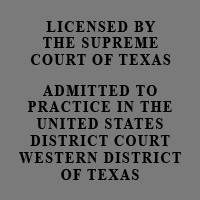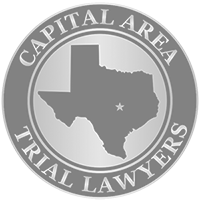Incompetence and Non Compos Mentis (POAs & Guardian Issues) by Texas Guardian Lawyer Jason S. Coomer
As we get older, some of our loved ones find it more difficult to take care of themselves and deal with every day life. When the person becomes a danger to themselves or others, or are not able to manage their own financial affairs, it may become necessary to appoint a guardian for that person and meet with a Texas guardian lawyer to discuss guardianship issues. In a best case situation, the person can select their own guardian and assist with the transition.
Austin Guardian Lawyer, Jason Coomer works with families, friends, and proposed wards through the guardianship application process. For questions on Texas Guardianships, please e-mail Austin Texas Guardian Lawyer Jason Coomer at AustinGuardianLawyer@texaslawyers.com or use our Law Office contact form.
Texas Guardianship Law and Incompetent Persons
"Non Compos Mentis" and "incompetent" are terms used when a person cannot take care of herself or himself. The term non compos mentis comes from Latin, non meaning "not," compos meaning "in control," and mentis means not having a sound mind; not sane.
Factors in determining whether a person is competent include whether the proposed ward can take care of their financial affairs, enter into contracts, feed themselves, or seek necessary health care for themselves. When a person can no longer do these tasks or they become a danger to themselves, it may be necessary to file an Application for a Guardianship to protect their health and best interests.
Under Texas Guardianship Law, people that do not have the ability to care for themselves can be declared a ward and have a someone or professional service named as their guardian. Making the transition from independent living to becoming a ward can be difficult. It is important through this time period for the person to have family and friends as well as a good guardian to take care of a ward. Austin Texas Guardian Lawyer Jason Coomer works with families and friends to apply for guardianships for their loved ones and handle the legal procedures needed to be done complete the guardianship.
Incapacitated Persons and Guardians
According to the Texas Probate Code Section 601 (14), there are three types of incapacitated people that need guardians. The first is a minor which includes those under 18 years of age that have not been emancipated. The second are adults who because of a physical or mental condition, are substantially unable to provide food, clothing, or shelter for themselves, to care for their own physical health, or to manage the individual's own financial affairs. The third are people that must have a guardian appointed to receive funds due the person from any governmental sources.
A person is determined to be "incapacitated" upon a finding by a court that the person lacks the capacity to do some, but not necessarily all, or the tasks necessary to care for himself or herself or to manage his or her property.
A court may appoint a guardian with full authority over an incapacitated person or may grant a guardian limited authority over an incapacitated person as indicated by the incapacitated person's actual mental or physical limitations and only as necessary to promote and protect the well-being of the person. If the person is not a minor, the court may not use age as the sole factor in determining whether to appoint a guardian for the person. In creating a guardianship that gives a guardian limited power or authority over an incapacitated person, the court shall design the guardianship to encourage the development or maintenance of maximum self-reliance and independence in the incapacitated person.
The Duties of a Guardian
The duties of a guardian are not only to take care of the ward or minor, but to manage the ward's finances or estate. Included in these duties are accounting reports that must be filed in managing the ward's finances. The failure to properly manage the estate or prepare the accounting reports can be a breach of fiduciary duty and can subject the guardian to liability for any misspent money or unaccounted assets.
As an Austin Guardianship Lawyer, Jason Coomer helps families file applications for guardianships, find alternatives to guardianships, contest applications for guardianships, file breach of fiduciary duty claims against guardians that have mismanaged or stolen money, and defend guardians that have been accused of misappropriation of funds.
If someone close to you is in need of a guardian and needs someone to take care of their financial affairs or even worse if there are others that are attempting to wrongfully seize your or someone you love's assets, make sure that there is someone to look out for your interests. A court appointed attorney may help Someone to assist in seeking inventories and obtaining an accounting as to what has been spent and what needs to be done to free up property and assets.
Austin Texas Guardianship Lawyer, Jason Coomer works with families and friends that have to have someone declared incompetent and fights for people that have been involuntarily accused of being incompetent and placed in a nursing home. Guardianships can be difficult and it is important to have an attorney that can assist you through the process with the least amount of problems. For questions on Guardianships, Alternatives to Guardianships, Probate Administration, Estate Planning, or Wills and Trusts, please e-mail Austin Probate Attorney Jason S. Coomer at austinguardianlawyer@texaslawyers.com or use our contact form The Law Offices of Jason S. Coomer.
The Law Offices of Jason S.
Coomer, PLLC
3901 S. Lamar Blvd., Ste. 260
Austin, Texas 78704
(512) 474-1477
jason@texaslawyers.com
Feel Free to Contact Us with any Questions
Associations




